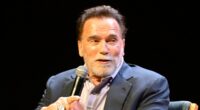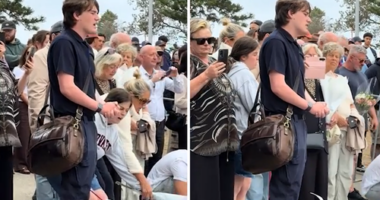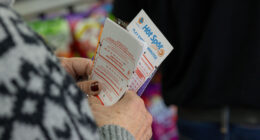Share this @internewscast.com
A fierce supercell storm hit the region south of Brisbane last night, pelting the Scenic Rim and Logan with hailstones the size of golf balls, according to Weatherzone.
This afternoon and evening, residents are being alerted to the possibility of more treacherous supercell storms. There have already been reports of hail in Logan, Mount Tamborine, and Murwillumbah across the border.


Higgins Storm Chasing noted that hailstones larger than 10 cm were observed in Cornubia, Logan, earlier today.
“All the factors are in place for more severe thunderstorms to develop over northeast New South Wales and southeast Queensland on Monday,” stated Ben Domensino.
“These severe thunderstorms on Monday could bring heavy rain, wind gusts exceeding 90 km/h, and hailstones over 2 cm in diameter in certain areas,” he predicted.
The Bureau of Meteorology has also issued a caution for the affected regions.


It covers the northern rivers area south of the Queensland border as well as Queensland’s Beaudesert, Beenleigh and Canungra by 2.50pm and Logan Central, Cleveland and Jimboomba in Queensland by 3.20pm local time.
“A warm and humid airmass is combining with a southerly wind change and a low-pressure trough to trigger severe thunderstorms across the Northern Rivers this afternoon.” it said.
“Severe thunderstorms are generally moving to the north and northeast and are expected to contract towards the Queensland border. Severe thunderstorms also moving into the southwest of the State.”
Storms are forecast for the rest of the week.












